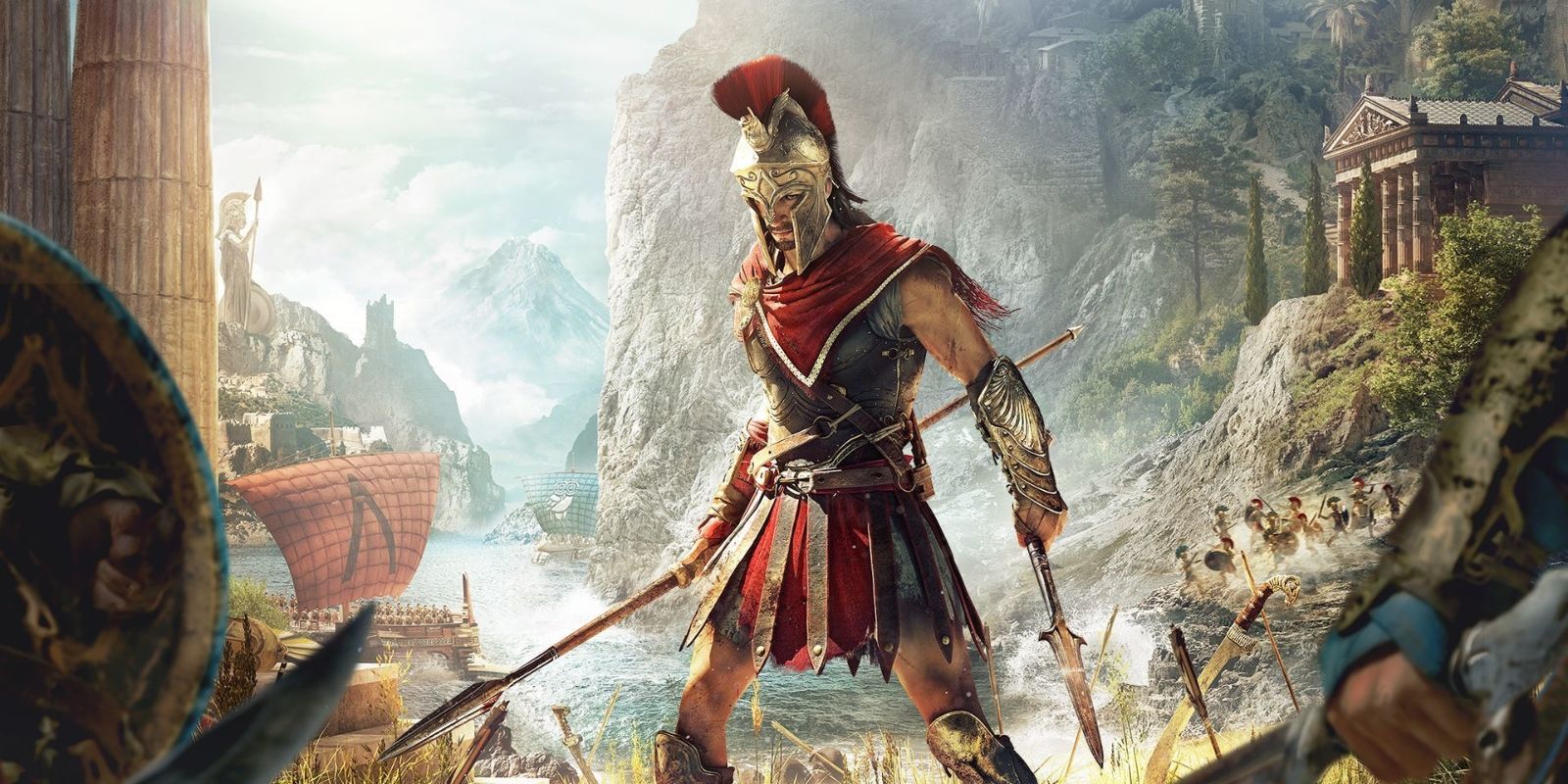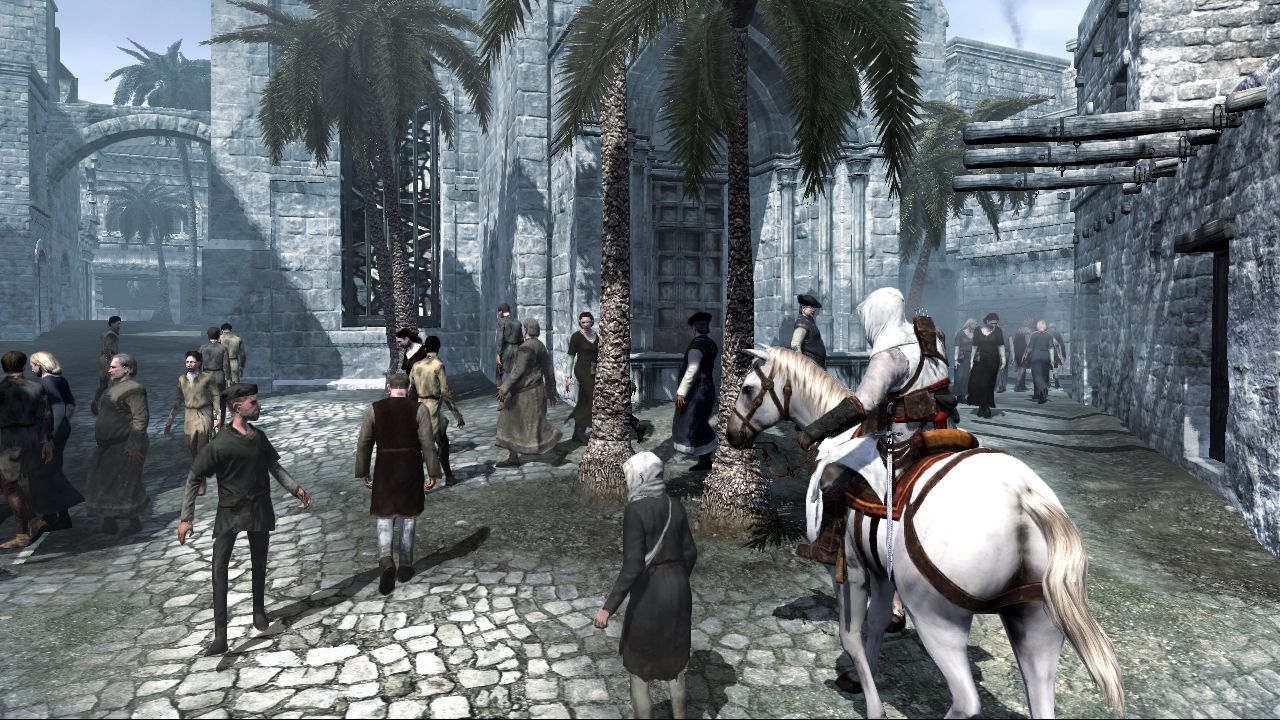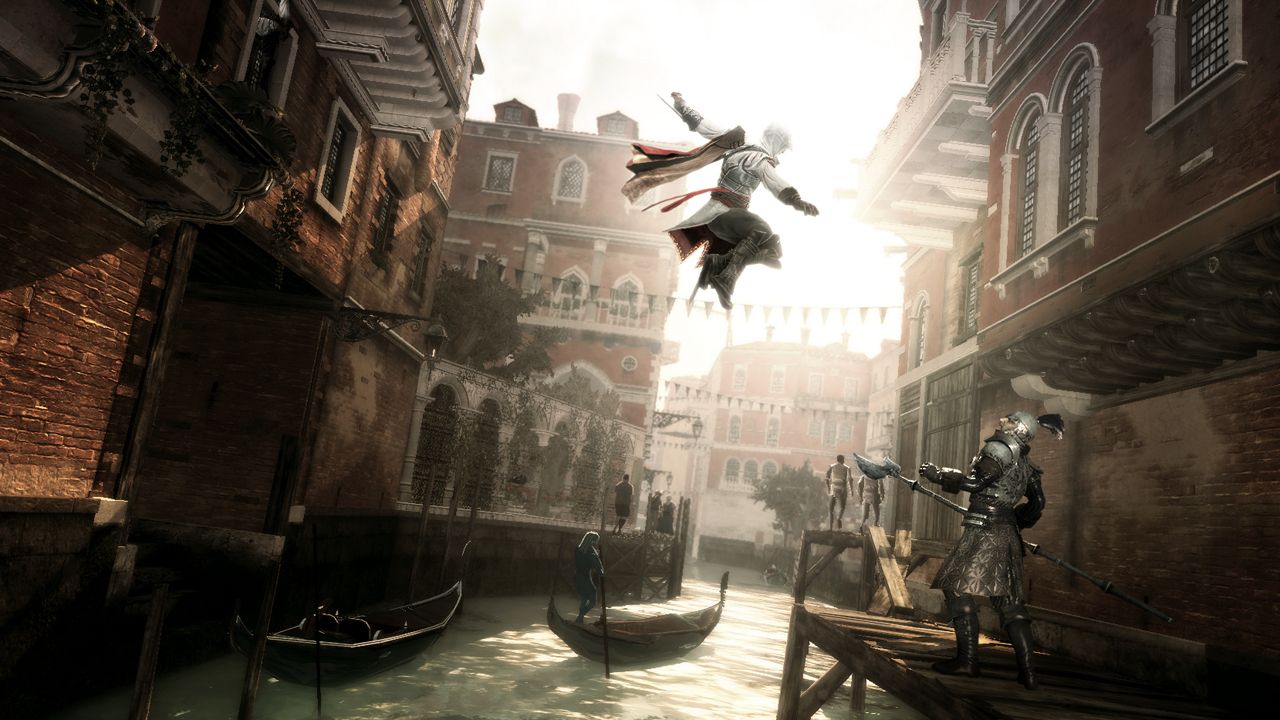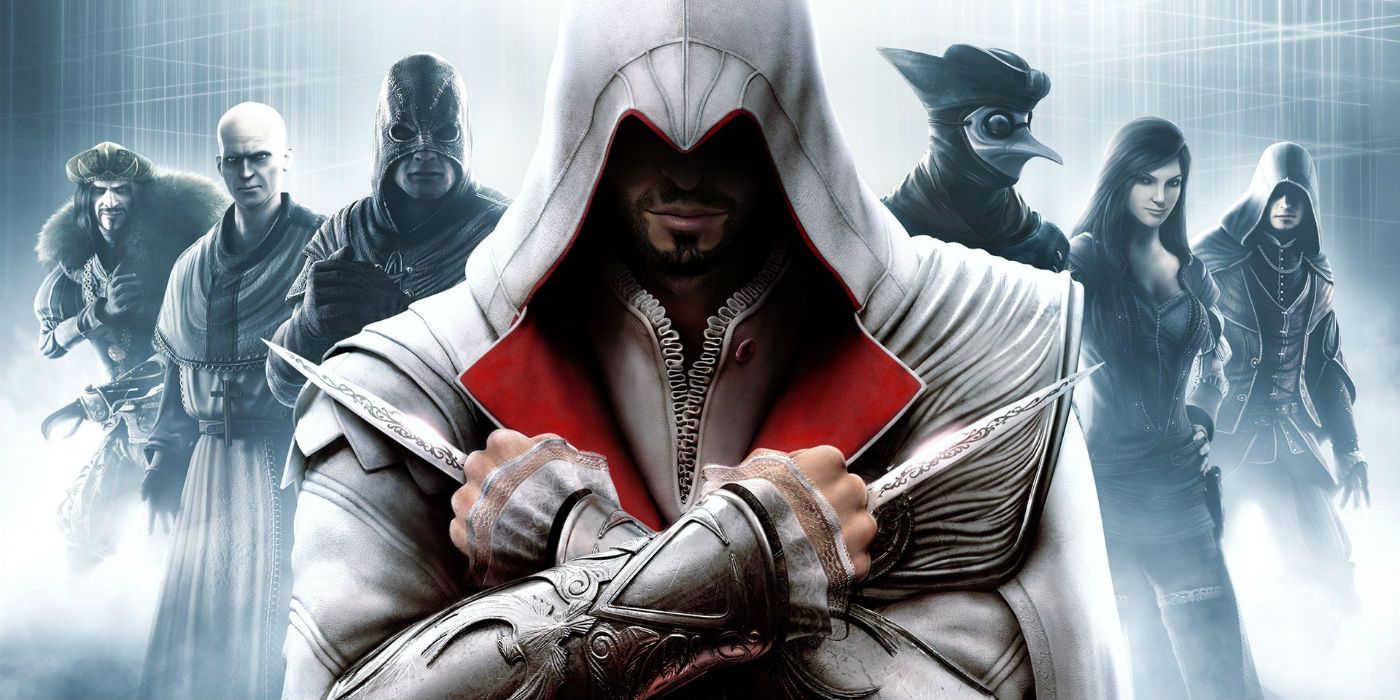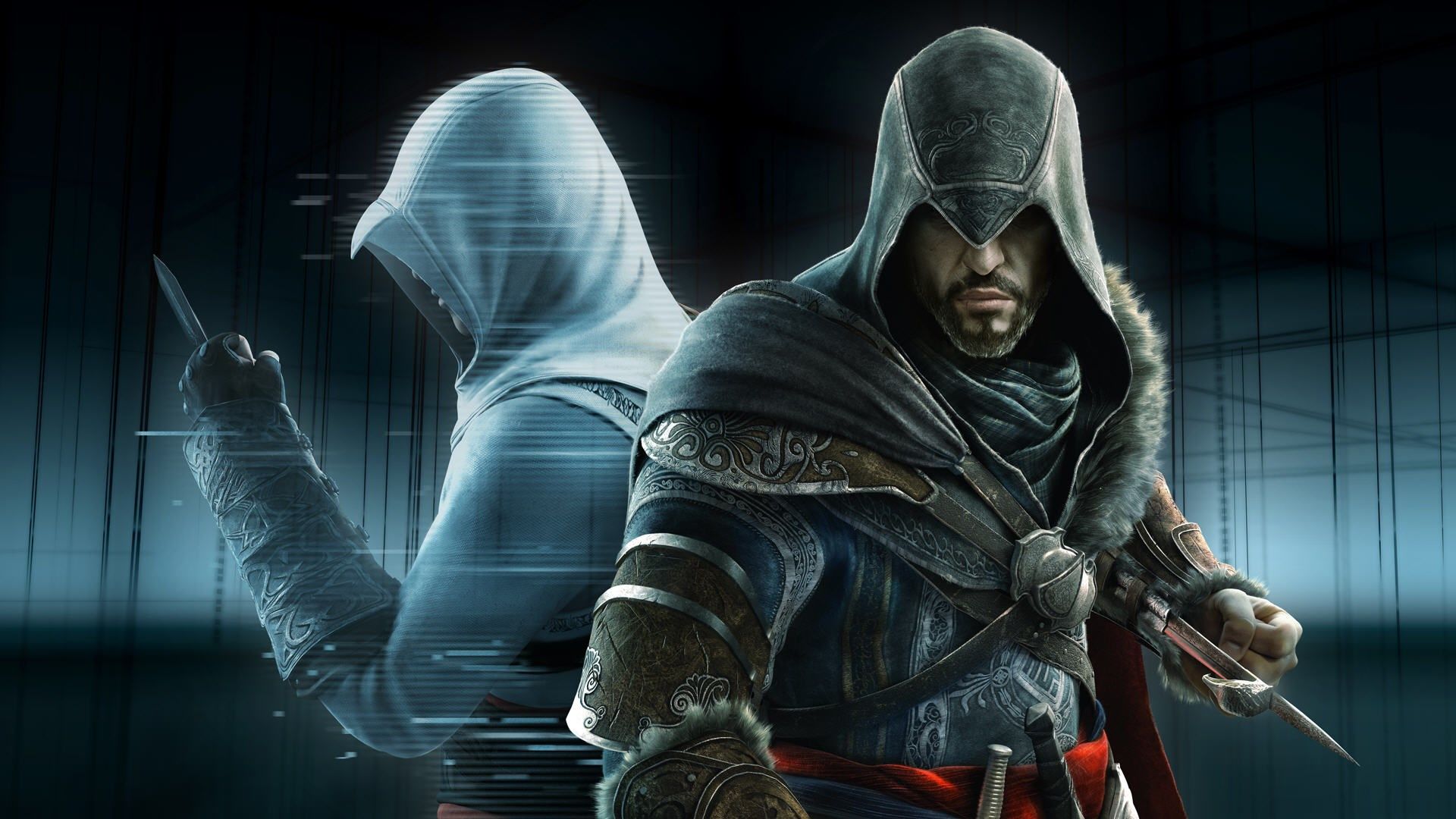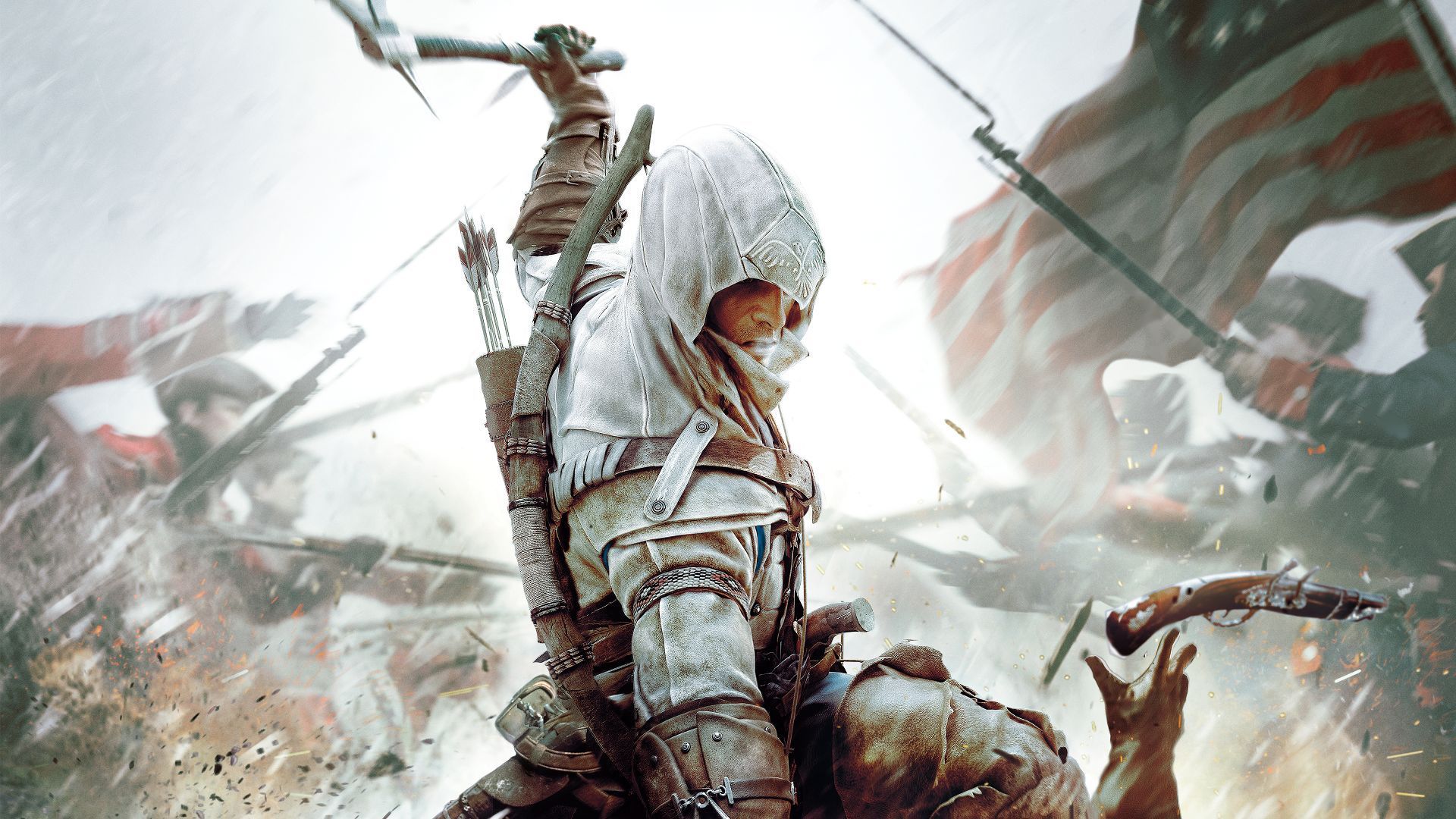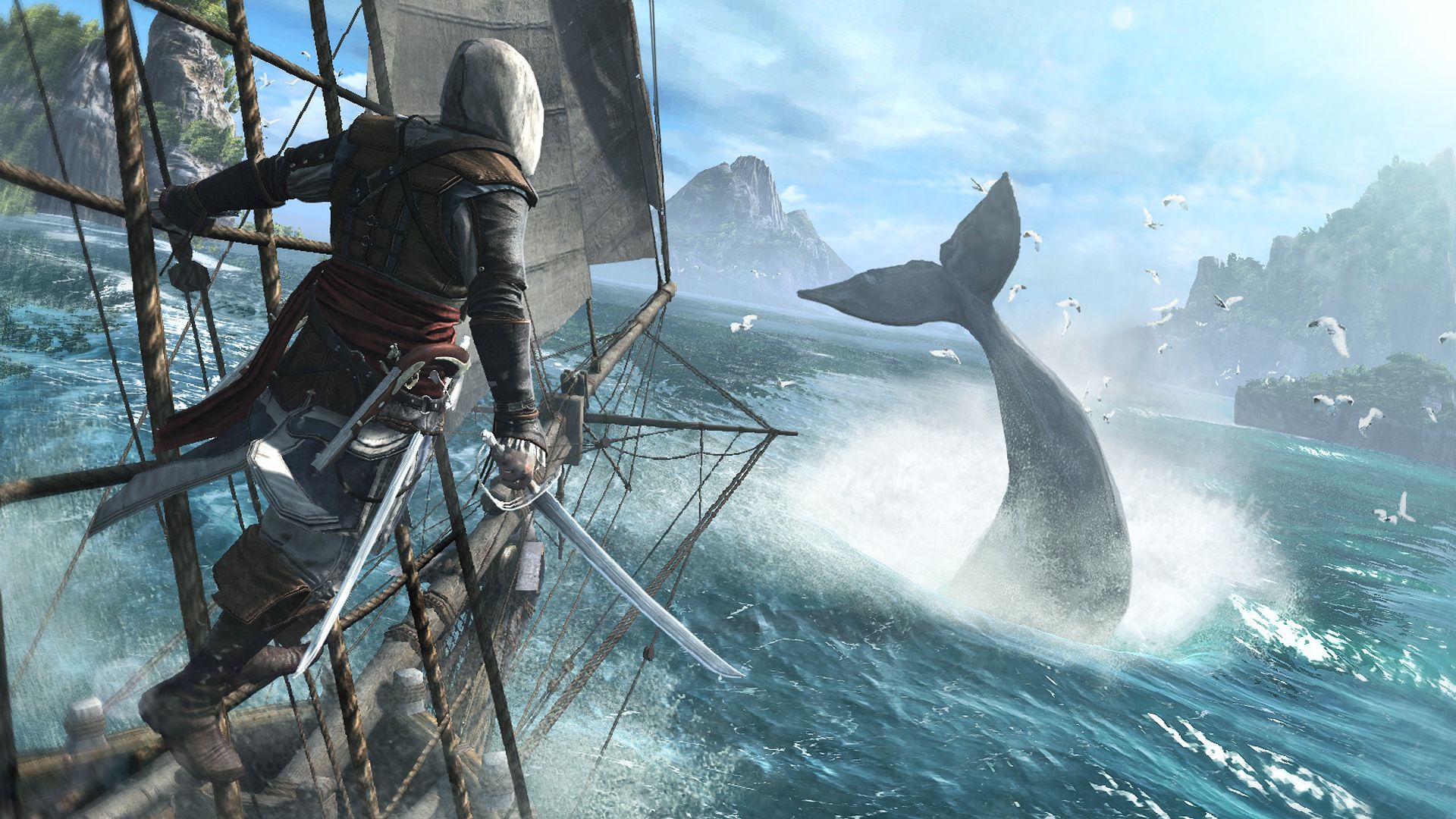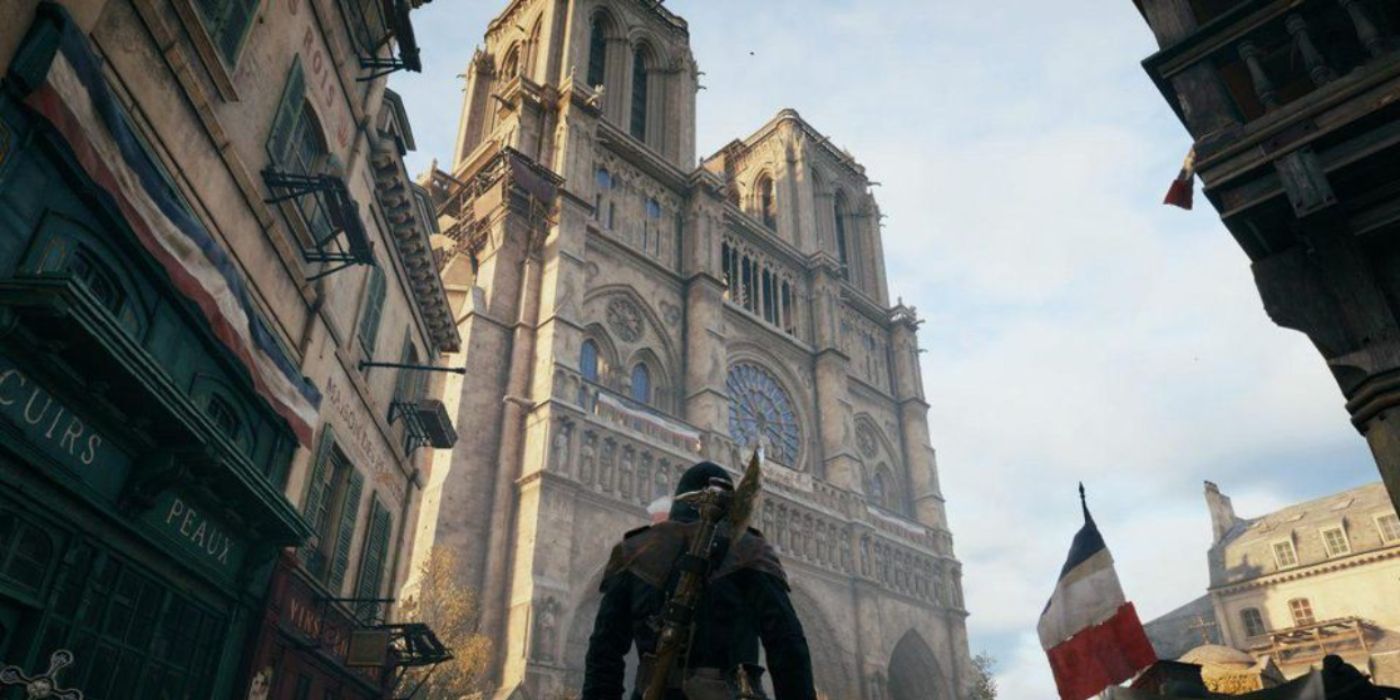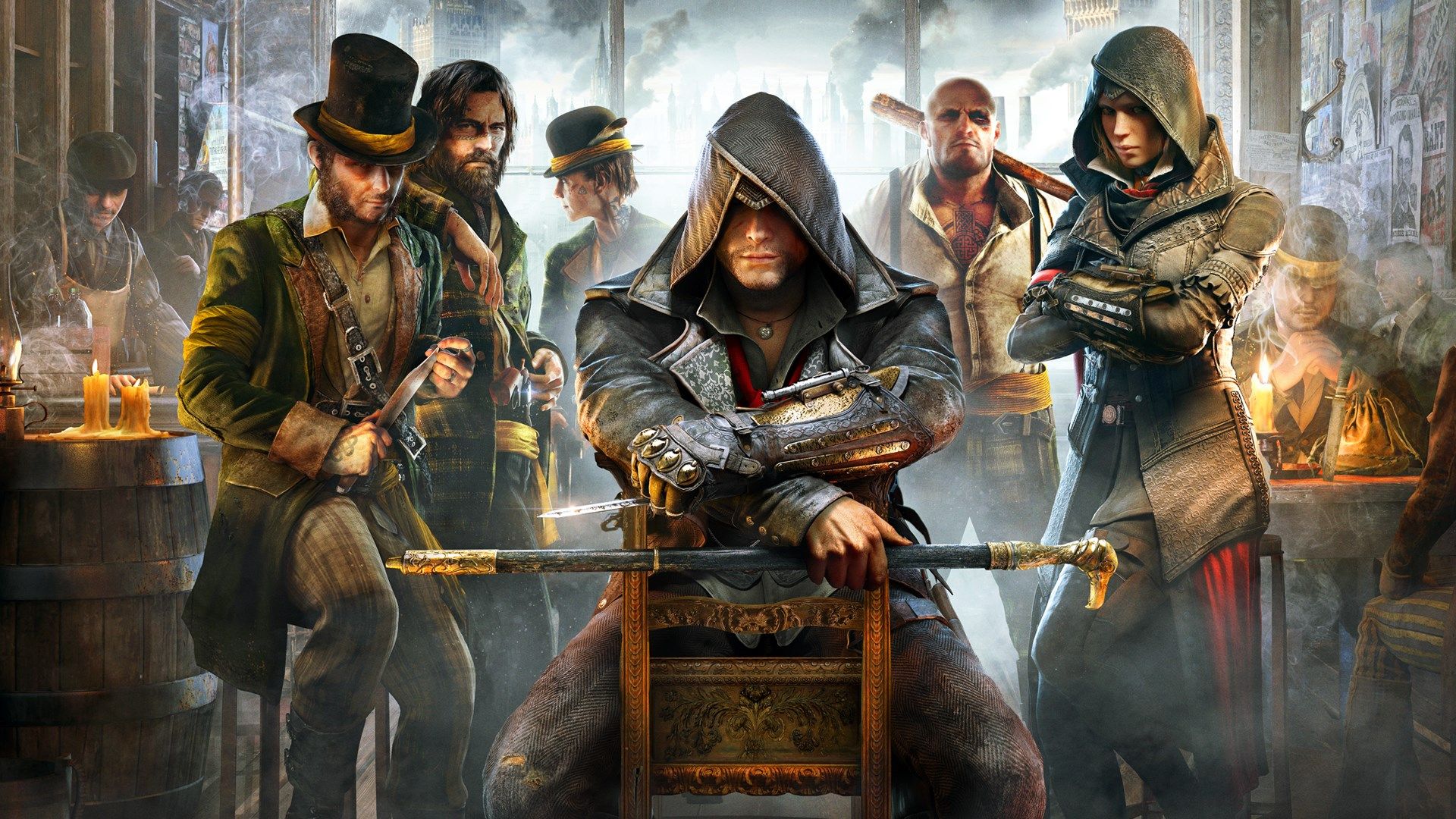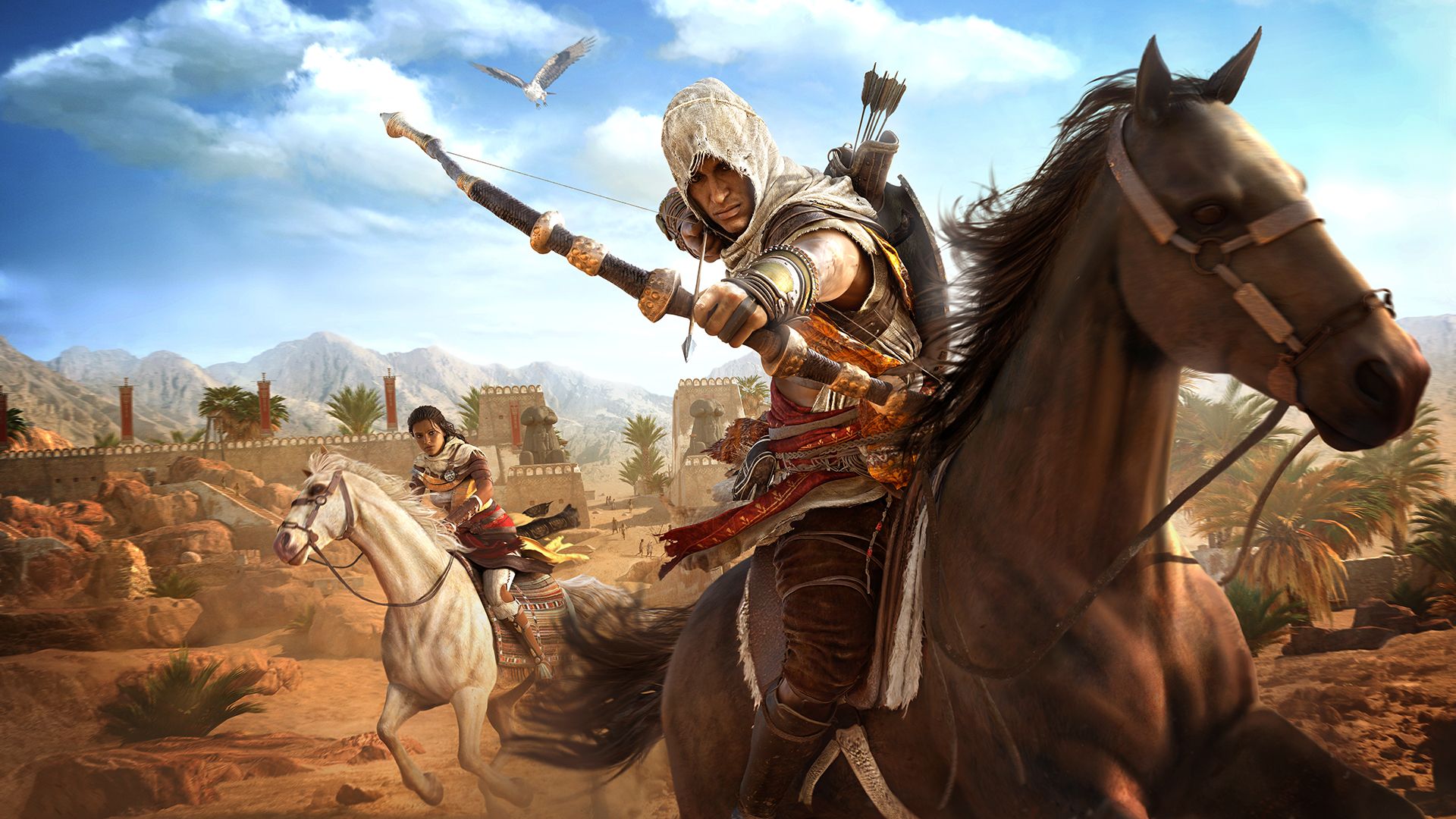Assassin's Creed is finally returning later this year. On Thursday, Ubisoft released the trailer yesterday for the next installment of the famous series, Assassin's Creed: Vahalla. The new game will focus on Viking invaders of England and is slated for release on June 19.
The Assassin's Creed series has certainly had a lot of ups and downs throughout the years. Criticisms of Ubisoft have often forced the studio to change its approach and restyle its stories and combat. There are pros and cons to each game in the Assassin's Creed lexicon. Here's a breakdown.
Assassin's Creed
The original Assassin's Creed (2007) conjured widespread excitement with a fantastic setting and concept, based off the real-life historical Order of Assassins -- known as the Hashashins -- whose existence coincided with the Third Crusade. With an amazing reveal trailer to accompany it, many hoped Assassin's Creed would be one of the most groundbreaking games of the 21st century.
This was not the case. The game was definitely enjoyable but its flaws were glaringly obvious. Campaign missions were strenuously repetitive, forcing players to follow a routine of eavesdropping, interrogating and pick-pocketing civilians before they could kill their target. Players weren't allowed any creative freedom in how they executed the Templars, having to use only their hidden blade. To many, the first game was quite the let down, with a wonderful idea being ineffectively executed.
Assassin's Creed 2
It is a testament to Assassin's Creed 2 (2009) that many still consider it to be the best game in the series despite being released so long ago. Ubisoft's sequel created one of the most memorable and beloved video game protagonists of all time in Ezio Auditore da Firenze and improved on the original game in almost every way. Largely a tale of revenge, Assassin's Creed 2 successfully integrated historical figures such as Machiavelli, Da Vinci and the eventual Pope, Rodrigo Borgia, into this compelling story as Ezio seeks to avenge his father and brother.
A strong pantheon of different opponents forced players to rethink how they fought masses of enemies, as did the introduction of the wrist-pistol. Set in the beautiful Italian Renaissance cities of Venice and Florence, the sequel propped up the Assassin's Creed franchise for continued success.
Assassin's Creed: Brotherhood
A continuation of Ezio's story, Brotherhood (2010) reduced the playable open-world cities to just one: Rome. Though beautiful, the variety of different settings was sorely missed in this installment. Despite its popular reception, there are many reasons to be critical of Brotherhood and its ill-advised multiplayer mode. Players' fellow assassins would often fail to mimic Ezio's stealth, revealing themselves to the guards and ruining the player's approach. The Brotherhood could only be used effectively as a unit of brute force, which took away from the elegance of combat.
Worst of all was the bratty antagonist, Cesare Borgia. Lacking the cunning and intimidation of his father, Rodrigo, Cesare never felt like a worthy adversary for Ezio.
Assassin's Creed: Revelations
Upon its release, fans lamented that Ubisoft made Revelations (2011) as nothing more than a filler game to bring in money before the eventual release of Assassin's Creed 3. However, there was much Revelations did well. The introduction of the grapple hook allowed players to move more freely across the city of Constantinople and the elite warrior class of the Janissaries proved to be a formidable new opponent.
Though the main story lacked the same intrigue of previous games, it still successfully wrapped up both Altair's and Ezio's stories for good. Up until this point, the former's fate had been unknown after the ending of the very first game.
Assassin's Creed 3
With a bland protagonist and a map too big for its own good, Assassin's Creed 3 (2012) impressed few. A dense forest acted as the main landscape and there was simply not enough going on in this open-world to justify its humongous size. The North American towns also lacked the flair and extravagance of previous settings.
Gamers also start AC 3 playing through the eyes of Connor Kenway's father, Templar Haytham Kenway, whose dry wit and charm would have made him a far more likable lead character. Archery and shooting mechanics were deservedly scrutinized too. The only saving grace was the naval combat, which would inspire the far better Black Flag.
Assassin's Creed IV: Black Flag
Black Flag (2013) turned the series on its head, proving the traditional Ubisoft formula wasn't necessary to make a good Assassin's Creed game. Playing as more of a pirate than an assassin, gamers could roam the open seas in their ship, attacking fortresses and enemy ships to gain loot. Though the Templar antagonists were generic and uninspired, Edward Kenway's transformation from a low-life vagabond to a dedicated and skilled assassin was an interesting hook.
The importance of ships in the game made for some dynamic combat scenes and permitted the leisurely exploration of the gorgeous Caribbean surroundings. It appeared as though the series was back to its best.
Assassin's Creed Unity
Hopes that Ubisoft would be delivering quality AC games with frequency were dashed by the release of Unity (2014) set during the French Revolution. Often cited as the very worst game in the series the game was not ready to be released and was riddled with glitches that were unavoidable, thus ruining the whole experience for players. Fortunately, the outraged reception from fans swayed Ubisoft into taking more time with its next release.
Assassin's Creed Syndicate
Being able to play as two characters (Jacob and Evie Frye) was a nice touch and made for a welcome change in Syndicate (2015). The Jack the Ripper DLC did well to capture the seedy underbelly of an Industrializing London. Being able to hijack carriages and engage in full-speed chases across the streets of London was easily one of the game's most memorable features.
Assassin's Creed Origins
With Origins (2017), Ubisoft proved it could adapt and go against the trend of moving linearly along with history. Uncovering the beginnings of the Creed, Origins gave the series a much needed revamp regarding the climbing and combat mechanics. The Great Pyramids, serene deserts and crystal blue waters make this game's map arguably the best in Assassin's Creed history.
Assassin's Creed Odyssey
Odyssey (2018) has arguably dragged Assassin's Creed back into mainstream gaming consciousness. Being able to play as either Kassandra or Alexios, decisions affect the story's conclusion and the fate of others. Players can also upgrade their armor and weapons, or collect those of mythical heroes and deities.
These fresh features made the game an unexpected hit and has fans waiting in eager anticipation for Valhalla's release.

